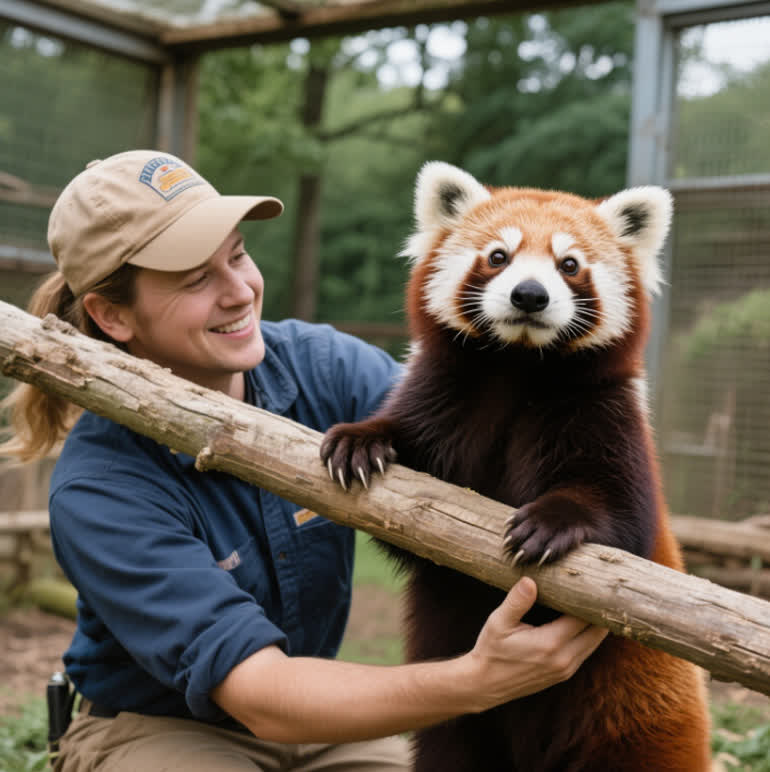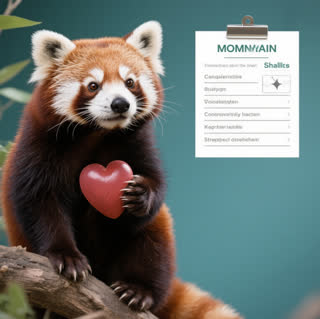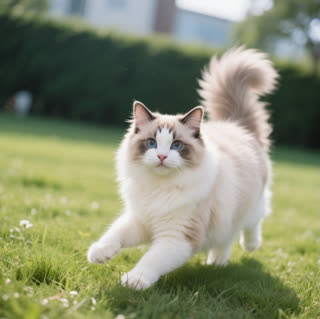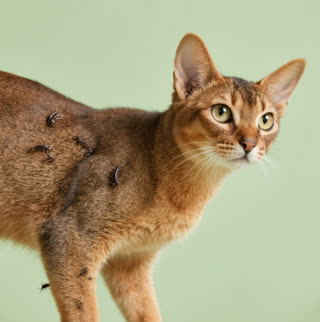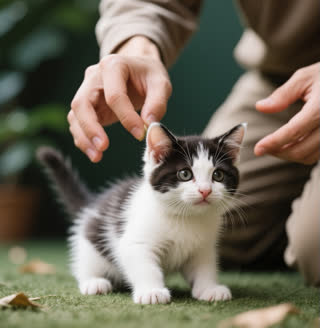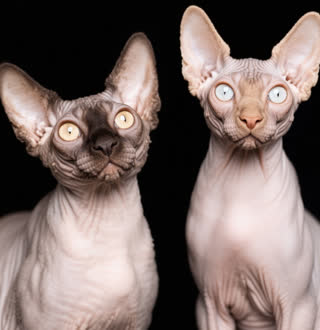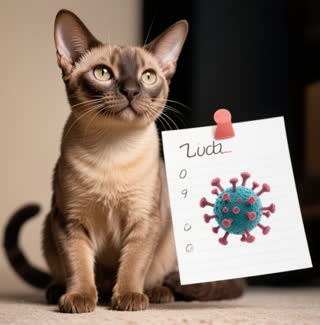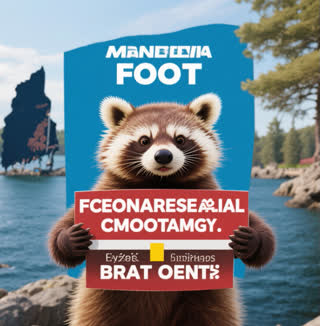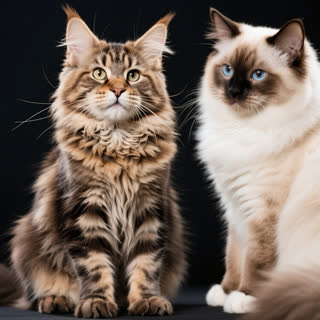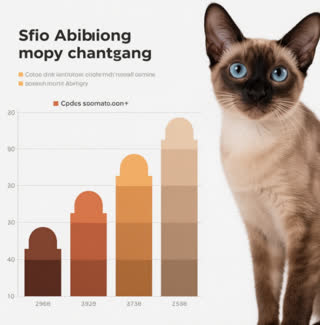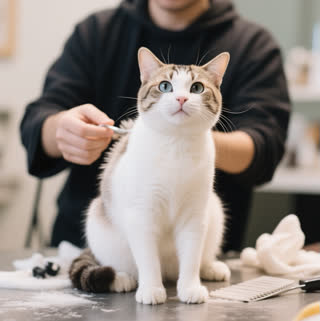1. The Majestic Appeal: Why Maine Coons Are Coveted in 2025
Impressive Size: Males can weigh up to 18 pounds, with females averaging 9–13 pounds. Their large, muscular build and tufted paws make them stand out in any household .
Lifespan: With a typical lifespan of 12–15 years, Maine Coons offer long-term companionship. Exceptional cases, like the late Rubble (31 years old), highlight their potential for longevity with proper care .
Affectionate Nature: Known for their sociable personalities, Maine Coons thrive on human interaction and often follow owners like loyal shadows. Their playful, kitten-like demeanor persists into adulthood .
2. The Practical Considerations: Challenges of Maine Coon Ownership
Health Risks
Hypertrophic Cardiomyopathy (HCM): A genetic heart condition affecting 30% of Maine Coons, HCM can lead to heart failure. New 2025 research emphasizes the role of nutrition in managing this disease, recommending diets low in sodium and high in taurine .
Polycystic Kidney Disease (PKD): Inherited cysts in the kidneys can cause chronic renal failure. Regular veterinary check-ups and genetic testing are crucial for early detection .
Grooming Needs
High Maintenance Coat: Maine Coons’ long, water-resistant fur requires weekly brushing to prevent matting. Bathing every 4–6 weeks and nail trimming every 2–3 weeks are also essential .
Shedding: Their thick coats shed heavily twice a year, necessitating frequent vacuuming and lint removal .
Space and Exercise
Size Requirements: These cats need ample space to move. Small apartments may restrict their activity, increasing the risk of obesity. Vertical spaces like cat trees and scratching posts help channel their energy .
Activity Levels: Despite their size, Maine Coons are playful and enjoy interactive toys. Lack of stimulation can lead to destructive behavior .
Dietary Costs
Protein-Rich Diet: Maine Coons require high-quality, protein-dense food to support their muscle mass. Brands like Smalls and Blue Buffalo Wilderness are recommended for 2025, with prices ranging from $30–$60 per month .
Portion Control: Overfeeding can lead to obesity, a common issue in the breed. Veterinarians advise measuring portions and avoiding free-feeding .
3. 2025 Trends Shaping Maine Coon Ownership
Healthcare Advancements
Genetic Testing: Breeders now widely use DNA tests to screen for HCM and PKD, reducing the risk of hereditary diseases in kittens .
Nutritional Guidelines: New studies highlight the importance of omega-3 fatty acids and probiotics in maintaining coat health and gastrointestinal function .
Lifestyle Adaptations
Indoor Living: Due to their popularity and vulnerability to theft or injury, more owners are keeping Maine Coons indoors. Enrichment activities like puzzle feeders and catnip toys help prevent boredom .
Sustainability: Eco-friendly grooming products and biodegradable litter options are gaining traction among environmentally conscious owners .
4. Making an Informed Decision: Is a Maine Coon Right for You?
Ideal for:
Families: Their patient nature and love for children make them excellent family pets .
Active Households: Owners who can provide daily playtime and mental stimulation will thrive with a Maine Coon .
Long-Term Commitment: Those seeking a loyal companion for over a decade will appreciate their lifespan .
Not Suitable for:
Busy Lifestyles: Maine Coons crave attention and may develop anxiety if left alone for extended periods .
Allergy Sufferers: While not hypoallergenic, their thick fur traps dander, potentially triggering allergies .
Budget-Conscious Owners: The costs of premium food, grooming supplies, and veterinary care can be substantial .
5. Expert Tips for a Happy Maine Coon in 2025
Regular Vet Visits: Schedule annual check-ups to monitor heart and kidney health .
Mental Stimulation: Use interactive toys and scratching posts to prevent obesity and destructive behavior .
Grooming Routine: Brush weekly and invest in a de-shedding tool to manage fur .
FAQs
A: Yes, they are social and often bond with dogs and other cats .
A: At least 30 minutes of playtime daily to maintain muscle tone and prevent obesity .
A: Yes, high-protein, low-carbohydrate diets are recommended to support their large size .
